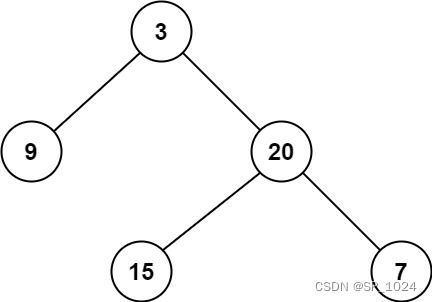- LinkedList集合源码解析
小北m
java
LinkedList集合LinkedList是一个基于双向链表实现的集合类LinkedList实现了以下接口:List:表明它是一个列表,支持添加、删除、查找等操作,并且可以通过下标进行访问。Deque:继承自Queue接口,具有双端队列的特性,支持从两端插入和删除元素,方便实现栈和队列等数据结构。Cloneable:表明它具有拷贝能力,可以进行深拷贝或浅拷贝操作。Serializable:表明它
- OpenCV特征点提取算法orb、surf、sift对比
点云SLAM
图形图像处理ORB算法SIFT算法人工智能计算机视觉算法
下面是OpenCV中三种常用特征点提取算法:ORB、SURF和SIFT的详细对比,从算法原理、性能、使用限制和适用场景多维度进行总结,帮助大家在实际项目中合理选择。一览表:ORBvs.SURFvs.SIFT属性/算法ORBSURFSIFT全称OrientedFASTandRotatedBRIEFSpeededUpRobustFeaturesScale-InvariantFeatureTransfo
- 2025.06.11华为暑期实习机试真题【最大的矩形新游戏】Java/Python/C++/JS/C 实现
MISAYAONE
python华为javac++华为暑期实习机试
目录题目思路Code题目小华之前玩过一个游戏,在横轴上放了n个相邻的矩形,每个矩形的宽度是1,而第i(1≤i≤n)个矩形的高度为h[i],这n个短形构成了一个直方图,在直方图中我留能够勾勒出来的矩形的最大面积。这个游戏小华已经玩得很腻了,于是小华就想增加一下难度,现在有1次交换任意2个矩形的操作,请问在交换后,能够勾勒出的最大的短形面积能达到多少呢?输入描述第-行包含一个整数n(2=h的矩形聚集在
- 探索Pebble时代遗留的瑰宝:Slate框架简介
宣苓滢Rosa
探索Pebble时代遗留的瑰宝:Slate框架简介项目介绍随着技术迭代的脚步,Slate——曾经为Pebble智能手表应用提供强大支持的前端框架,虽然已被Clay取而代之,但其在移动配置页面开发领域的创新精神值得回顾。它以简洁高效的设计理念,让开发者能够快速创建美观且用户友好的配置界面,曾是众多Pebble应用背后的功臣。技术深度剖析Slate基于轻量级的JavaScript库Zepto.js构建
- 金融量化交易如何精准把握市场趋势?这些策略你不能错过!
股票程序化交易接口
量化交易股票API接口Python股票量化交易金融金融量化交易市场趋势技术分析策略基本面分析策略股票量化接口股票API接口
Python股票接口实现查询账户,提交订单,自动交易(1)Python股票程序交易接口查账,提交订单,自动交易(2)股票量化,Python炒股,CSDN交流社区>>>金融量化交易把握市场趋势的基础认知金融量化交易旨在通过数学模型和计算机算法来执行交易决策。市场趋势反映了市场价格的总体走向,量化交易与市场趋势紧密相连。量化交易借助数据和算法去捕捉市场趋势信号,以决定买卖时机。准确把握市场趋势能为量化
- 机器视觉通用平台之点直线距离算法UI
小治视觉
算法uivisualstudioc#windows
usingCvBase;usingCWindowTool;usingHalconDotNet;usingSystem;usingSystem.Collections.Generic;usingSystem.ComponentModel;usingSystem.Data;usingSystem.Diagnostics;usingSystem.Drawing;usingSystem.Linq;usin
- 机器视觉通用平台之点点距离算法工具类
usingCvBase;usingCWindowTool;usingSystem;usingSystem.Collections.Generic;usingSystem.Linq;usingSystem.Text;usingSystem.Threading.Tasks;usingHalconDotNet;usingNewtonsoft.Json;usingSystem.IO;namespaceCv
- 机器视觉通用平台之点轮廓距离算法工具类
小治视觉
c#算法visualstudiowindowsui
usingCvBase;usingCWindowTool;usingHalconDotNet;usingSystem;usingSystem.Collections.Generic;usingSystem.IO;usingSystem.Linq;usingSystem.Text;usingSystem.Threading.Tasks;namespaceCvImageTool.DistancePC{
- Node.js基础用法
Komorebi_9999
node.js
一、基础用法与核心模块1.运行Node.js脚本bash#运行JS文件nodescript.js#进入交互式环境(REPL)node2.核心模块示例文件系统(fs模块)javascriptconstfs=require('fs').promises;//异步Promise版本constpath=require('path');//读取文件asyncfunctionreadFile(){try{co
- Leetcode刷题营第十五题:相交链表
科大饭桶
leetcode算法链表数据结构c
160.相交链表相关给你两个单链表的头节点headA和headB,请你找出并返回两个单链表相交的起始节点。如果两个链表不存在相交节点,返回null。图示两个链表在节点c1开始相交:题目数据保证整个链式结构中不存在环。注意,函数返回结果后,链表必须保持其原始结构。自定义评测:评测系统的输入如下(你设计的程序不适用此输入):intersectVal-相交的起始节点的值。如果不存在相交节点,这一值为0l
- 代码随想录算法训练营第二十五天
天天开心(∩_∩)
算法
LeetCode.491递增子序列题目链接递增子序列题解classSolution{List>resList=newArrayList>();Listres=newArrayList>findSubsequences(int[]nums){dfs(nums,0);returnresList;}privatevoiddfs(int[]nums,intindex){Setuset=newHashSet
- Leetcode刷题营第三十三题:对称二叉树
101.对称二叉树给你一个二叉树的根节点root,检查它是否轴对称。示例1:输入:root=[1,2,2,3,4,4,3]输出:true示例2:输入:root=[1,2,2,null,3,null,3]输出:false提示:树中节点数目在范围[1,1000]内-100val!=q->val){returnfalse;}returnismirrortree(p->left,q->right)&&is
- 机器视觉通用平台之线线距离算法UI
小治视觉
算法uiwindowsvisualstudioc#
usingCvBase;usingCWindowTool;usingHalconDotNet;usingSystem;usingSystem.Collections.Generic;usingSystem.ComponentModel;usingSystem.Data;usingSystem.Diagnostics;usingSystem.Drawing;usingSystem.Linq;usin
- Python+Selenium自动化
1,什么是seleniumselenium是一个开源的自动化测试框架,主要适用WEB测试,可以支持多种语言(Java,C#,Python,php等),既然支持多语言开发,那跨平台自然就不用多说啦,selenium有几个版本,一个是seleniumIDE(是一个安装在火狐浏览器上的一个插件,可以用来录制脚本,然后导出自动生成对应的开发语言文件),seleniumGrid(自动化辅助工具,楼主还没深入
- 暑假训练.2
zz1342315890
暑假acm训练acm训练
因为网络,上午都没写成题,太伤心了。下午的时候,才去写题。今天的题对于我来说,真的好难啊。让我感觉自己差得好远啊!我应该去看看算法入门经典第二版了,光刷题,不学习也没有用啊!我知道,没有去学校集训,可能到时候参加选拔的资格也没有。但是,对于现在的我来说,不得不待在家里面。没什么,好好学习!
- 摄影测量后方交会算法C#实现
安平桥
C#摄影测量后方交会
界面设计控制点PID,x(mm),y(mm),X(m),Y(m),Z(m)1,-86.15,-68.99,36589.41,25273.32,2195.172,-53.4,82.21,37631.08,31324.51,728.693,-14.78,-76.63,39100.97,24934.98,2386.54,10.46,64.43,40426.54,30319.81,757.31导入数据Op
- 高频面试雷区:Java Object六大核心方法源码剖析
JavaObject核心方法全解:从源码到实战的深度指南在Java开发中,90%的对象操作都离不开Object类的方法,但大多数开发者仅停留在表面理解。本文将深入源码揭示每个方法的底层机制,并通过真实场景展示如何正确使用这些基础但强大的工具。一、Object类全景图:Java对象的基因库Object+wait():void+wait(longtimeout):void+notify():void+
- AI-调查研究-33- 咖啡价格战 连锁咖啡低价策略全景分析:补贴、成本与盈利模型
点一下关注吧!!!非常感谢!!持续更新!!!AI篇持续更新中!(长期更新)AI炼丹日志-30-新发布【1T万亿】参数量大模型!Kimi‑K2开源大模型解读与实践,持续打造实用AI工具指南!Java篇正式开启!(300篇)目前2025年07月16日更新到:Java-74深入浅出RPCDubboAdmin可视化管理安装使用源码编译、Docker启动MyBatis已完结,Spring已完结,Nginx已
- Java&Kotlin泛型机制详解
u010131088
javakotlin开发语言
文章目录什么是泛型泛型简单创建与使用二、泛型的上下界泛型擦除泛型的静态问题Kotlin中的泛型总结什么是泛型泛型的本质就是类型检查和自动转型,类型约束,解决参数化类型;泛型分为泛型接口,泛型类,泛型方法。作用:避免强制类型转换错误,提高代码复用性。泛型简单创建与使用//泛型接口publicinterfaceBehavior{//此处表示声明泛型方法//|publicEeating(Efood);p
- 数据结构--链表(单向链表)
二进制person
数据结构链表java开发语言算法
一.链表的概念链表是一种物理存储结构上非连续存储结构,数据元素的逻辑顺序是通过链表中的引用链接次序实现的,有单向链表和双向链表。二.单向结构三.单向链表的模拟实现publicclassMylink{privateListNodehead;classListNode{publicintvalue;publicListNodenext;publicListNode(intvalue){this.val
- 目标检测中的标签分配算法总结
北京地铁1号线
目标检测与图像处理人工智能
目标检测中的标签分配算法是训练过程中的一个核心环节,它决定了如何将标注好的真实目标框分配给模型预测出来的候选框(AnchorBoxes或Points),从而为这些候选框提供监督信号(正样本、负样本、忽略样本)。它的质量直接影响模型的学习效率和最终性能。简单来说,标签分配要解决的关键问题是:“哪些预测框应该负责学习哪些真实目标?”一、为什么标签分配如此重要?1.定义学习目标:它直接告诉模型哪些预测应
- 代码随想录算法训练营总结篇
m0_74934708
算法
第一次接触卡哥的课程是在大二上,当时做N皇后的题目看到卡哥的视频觉得大受裨益,就想着有时间能够刷完卡哥录制的整期课程,后面有算法训练营的监督让我很幸运地坚持了六十天,学到了很多东西,像贪心算法、动态规划、单调栈以及在二叉树里使用BFS和DFS,都是一些很美妙的思路。这次一刷leetcode后面要去学学前端了,等到暑假有时间希望可以跟着卡哥二刷leetcode。学会算法后再去做题有些痛苦,但做出来的
- 图论篇--代码随想录算法训练营第五十九天打卡|Bellman_ford 算法精讲,SPFA算法,Bellman ford之判断负权回路,Bellman ford之单源有限最短路
無量空所
leetcode算法图论c++
本系列算法用来解决有负权边的情况Bellman_ford算法精讲题目链接:94.城市间货物运输I题目描述:某国为促进城市间经济交流,决定对货物运输提供补贴。共有n个编号为1到n的城市,通过道路网络连接,网络中的道路仅允许从某个城市单向通行到另一个城市,不能反向通行。网络中的道路都有各自的运输成本和政府补贴,道路的权值计算方式为:运输成本-政府补贴。权值为正表示扣除了政府补贴后运输货物仍需支付的费用
- Java泛型机制详解
念何架构之路
Java基础java开发语言
引入泛型的原因泛型的本质是为了参数化类型(在不创建新的类型的情况下,通过泛型指定的不同类型来控制形参具体限制的类型)。也就是说在泛型使用过程中,操作的数据类型被指定为一个参数,这种参数类型可以用在类、接口和方法中,分别被称为泛型类、泛型接口、泛型方法。引入泛型的意义适用于多种数据类型执行相同的代码(代码复用)publicclassFloatTest01{staticabstractclassAni
- 【前端vue3面试题】2024最新面试实录vue3(2),最新前端大厂高频面试题
*watch与watchEffect*provide与inject重构虚拟DOM,diff算法生命周期更名beforeDestroy改名为beforeUnmountdestroyed改名为unmounted//Vue3.0也提供了CompositionAPI形式的生命周期钩子,与Vue2.x中钩子对应关系如下:beforeCreate===>setup()created===>setup()bef
- 阿里面试现场实录,三轮技术面+HR面总结归纳,属于包教包会的面经了
程序媛小洁
程序人生程序员面试经验面试java经验分享
一、开场白简单的介绍一下自己的工作经历与职责,在校或者工作中主要的工作内容,主要负责的内容;(你的信息一清二白的写在简历上,这个主要为了缓解面试者的压力)介绍下自己最满意的,有技术亮点的项目或平台,重点介绍下自己负责那部分的技术细节;(主要考察应聘者对自己做过的事情是否有清晰的描述,判断做的事情的复杂度)作者为大家整理了很多资料!包括一线大厂Java面试题总结+各知识点学习思维导+一份300页pd
- MATLAB 基于图像处理的杂草识别技术
鱼弦
matlab图像处理计算机视觉
MATLAB基于图像处理的杂草识别技术1.系统介绍杂草识别是精准农业中的重要环节,基于图像处理的杂草识别技术利用计算机视觉和机器学习算法,自动识别田间杂草,为精准施药提供决策支持。本系统基于MATLAB实现杂草图像处理,包括图像预处理、特征提取、分类识别等模块。2.应用场景精准农业:自动识别田间杂草,实现精准施药,减少农药使用量。生态监测:监测农田杂草种类和分布,评估生态环境。植物保护:识别有害杂
- 【C#、C++ 和 Java】实现重力迷宫游戏
鱼弦
游戏开发c#c++java游戏
引言(Introduction)重力迷宫是一种益智游戏,玩家通过旋转整个游戏区域(迷宫),改变重力的方向,使得玩家角色和其他可动物体(如箱子、球)沿着新的重力方向下落。玩家的目标是利用重力到达迷宫的出口。实现重力迷宫需要管理复杂的网格状态(地形和物体),处理旋转输入,并实现根据当前重力方向模拟物理下落的逻辑。技术背景(TechnicalBackground)实现重力迷宫主要涉及以下核心技术概念:游
- 维基框架发布 1.0.11 至中央仓,深化国产化 DevOps 生态整合
维基框架
维基框架springbootspringcloudmybatis架构
一、核心事件:维基框架1.0.11正式入驻中央仓库维基框架(Wiki-Framework)作为国产全场景Java企业级开发框架,于7月9日正式发布v1.0.11版本至中央软件仓库(MavenCentral),标志着其正式纳入全球主流开发工具生态。本次发布聚焦安全增强与云原生适配:安全升级:集成OAuth2.1协议,修复CVE-2025-0113等5项高危漏洞,支持国密算法SM4加密通信。云原生支持
- Python 机器学习:NumPy 实现朴素贝叶斯分类器
Python编程之道
Python编程之道python机器学习numpyai
Python机器学习:NumPy实现朴素贝叶斯分类器关键词:朴素贝叶斯分类器、NumPy、机器学习、概率模型、条件概率、拉普拉斯平滑、向量化计算摘要:本文系统讲解朴素贝叶斯分类器的核心原理,基于NumPy实现高效的算法框架,涵盖从概率理论到工程实现的完整流程。通过数学公式推导、代码实现和鸢尾花数据集实战,展示如何利用向量化计算优化概率估计,解决特征独立性假设下的分类问题。同时分析算法优缺点及实际应
- Maven
Array_06
eclipsejdkmaven
Maven
Maven是基于项目对象模型(POM), 信息来管理项目的构建,报告和文档的软件项目管理工具。
Maven 除了以程序构建能力为特色之外,还提供高级项目管理工具。由于 Maven 的缺省构建规则有较高的可重用性,所以常常用两三行 Maven 构建脚本就可以构建简单的项目。由于 Maven 的面向项目的方法,许多 Apache Jakarta 项目发文时使用 Maven,而且公司
- ibatis的queyrForList和queryForMap区别
bijian1013
javaibatis
一.说明
iBatis的返回值参数类型也有种:resultMap与resultClass,这两种类型的选择可以用两句话说明之:
1.当结果集列名和类的属性名完全相对应的时候,则可直接用resultClass直接指定查询结果类
- LeetCode[位运算] - #191 计算汉明权重
Cwind
java位运算LeetCodeAlgorithm题解
原题链接:#191 Number of 1 Bits
要求:
写一个函数,以一个无符号整数为参数,返回其汉明权重。例如,‘11’的二进制表示为'00000000000000000000000000001011', 故函数应当返回3。
汉明权重:指一个字符串中非零字符的个数;对于二进制串,即其中‘1’的个数。
难度:简单
分析:
将十进制参数转换为二进制,然后计算其中1的个数即可。
“
- 浅谈java类与对象
15700786134
java
java是一门面向对象的编程语言,类与对象是其最基本的概念。所谓对象,就是一个个具体的物体,一个人,一台电脑,都是对象。而类,就是对象的一种抽象,是多个对象具有的共性的一种集合,其中包含了属性与方法,就是属于该类的对象所具有的共性。当一个类创建了对象,这个对象就拥有了该类全部的属性,方法。相比于结构化的编程思路,面向对象更适用于人的思维
- linux下双网卡同一个IP
被触发
linux
转自:
http://q2482696735.blog.163.com/blog/static/250606077201569029441/
由于需要一台机器有两个网卡,开始时设置在同一个网段的IP,发现数据总是从一个网卡发出,而另一个网卡上没有数据流动。网上找了下,发现相同的问题不少:
一、
关于双网卡设置同一网段IP然后连接交换机的时候出现的奇怪现象。当时没有怎么思考、以为是生成树
- 安卓按主页键隐藏程序之后无法再次打开
肆无忌惮_
安卓
遇到一个奇怪的问题,当SplashActivity跳转到MainActivity之后,按主页键,再去打开程序,程序没法再打开(闪一下),结束任务再开也是这样,只能卸载了再重装。而且每次在Log里都打印了这句话"进入主程序"。后来发现是必须跳转之后再finish掉SplashActivity
本来代码:
// 销毁这个Activity
fin
- 通过cookie保存并读取用户登录信息实例
知了ing
JavaScripthtml
通过cookie的getCookies()方法可获取所有cookie对象的集合;通过getName()方法可以获取指定的名称的cookie;通过getValue()方法获取到cookie对象的值。另外,将一个cookie对象发送到客户端,使用response对象的addCookie()方法。
下面通过cookie保存并读取用户登录信息的例子加深一下理解。
(1)创建index.jsp文件。在改
- JAVA 对象池
矮蛋蛋
javaObjectPool
原文地址:
http://www.blogjava.net/baoyaer/articles/218460.html
Jakarta对象池
☆为什么使用对象池
恰当地使用对象池化技术,可以有效地减少对象生成和初始化时的消耗,提高系统的运行效率。Jakarta Commons Pool组件提供了一整套用于实现对象池化
- ArrayList根据条件+for循环批量删除的方法
alleni123
java
场景如下:
ArrayList<Obj> list
Obj-> createTime, sid.
现在要根据obj的createTime来进行定期清理。(释放内存)
-------------------------
首先想到的方法就是
for(Obj o:list){
if(o.createTime-currentT>xxx){
- 阿里巴巴“耕地宝”大战各种宝
百合不是茶
平台战略
“耕地保”平台是阿里巴巴和安徽农民共同推出的一个 “首个互联网定制私人农场”,“耕地宝”由阿里巴巴投入一亿 ,主要是用来进行农业方面,将农民手中的散地集中起来 不仅加大农民集体在土地上面的话语权,还增加了土地的流通与 利用率,提高了土地的产量,有利于大规模的产业化的高科技农业的 发展,阿里在农业上的探索将会引起新一轮的产业调整,但是集体化之后农民的个体的话语权 将更少,国家应出台相应的法律法规保护
- Spring注入有继承关系的类(1)
bijian1013
javaspring
一个类一个类的注入
1.AClass类
package com.bijian.spring.test2;
public class AClass {
String a;
String b;
public String getA() {
return a;
}
public void setA(Strin
- 30岁转型期你能否成为成功人士
bijian1013
成功
很多人由于年轻时走了弯路,到了30岁一事无成,这样的例子大有人在。但同样也有一些人,整个职业生涯都发展得很优秀,到了30岁已经成为职场的精英阶层。由于做猎头的原因,我们接触很多30岁左右的经理人,发现他们在职业发展道路上往往有很多致命的问题。在30岁之前,他们的职业生涯表现很优秀,但从30岁到40岁这一段,很多人
- [Velocity三]基于Servlet+Velocity的web应用
bit1129
velocity
什么是VelocityViewServlet
使用org.apache.velocity.tools.view.VelocityViewServlet可以将Velocity集成到基于Servlet的web应用中,以Servlet+Velocity的方式实现web应用
Servlet + Velocity的一般步骤
1.自定义Servlet,实现VelocityViewServl
- 【Kafka十二】关于Kafka是一个Commit Log Service
bit1129
service
Kafka is a distributed, partitioned, replicated commit log service.这里的commit log如何理解?
A message is considered "committed" when all in sync replicas for that partition have applied i
- NGINX + LUA实现复杂的控制
ronin47
lua nginx 控制
安装lua_nginx_module 模块
lua_nginx_module 可以一步步的安装,也可以直接用淘宝的OpenResty
Centos和debian的安装就简单了。。
这里说下freebsd的安装:
fetch http://www.lua.org/ftp/lua-5.1.4.tar.gz
tar zxvf lua-5.1.4.tar.gz
cd lua-5.1.4
ma
- java-14.输入一个已经按升序排序过的数组和一个数字, 在数组中查找两个数,使得它们的和正好是输入的那个数字
bylijinnan
java
public class TwoElementEqualSum {
/**
* 第 14 题:
题目:输入一个已经按升序排序过的数组和一个数字,
在数组中查找两个数,使得它们的和正好是输入的那个数字。
要求时间复杂度是 O(n) 。如果有多对数字的和等于输入的数字,输出任意一对即可。
例如输入数组 1 、 2 、 4 、 7 、 11 、 15 和数字 15 。由于
- Netty源码学习-HttpChunkAggregator-HttpRequestEncoder-HttpResponseDecoder
bylijinnan
javanetty
今天看Netty如何实现一个Http Server
org.jboss.netty.example.http.file.HttpStaticFileServerPipelineFactory:
pipeline.addLast("decoder", new HttpRequestDecoder());
pipeline.addLast(&quo
- java敏感词过虑-基于多叉树原理
cngolon
违禁词过虑替换违禁词敏感词过虑多叉树
基于多叉树的敏感词、关键词过滤的工具包,用于java中的敏感词过滤
1、工具包自带敏感词词库,第一次调用时读入词库,故第一次调用时间可能较长,在类加载后普通pc机上html过滤5000字在80毫秒左右,纯文本35毫秒左右。
2、如需自定义词库,将jar包考入WEB-INF工程的lib目录,在WEB-INF/classes目录下建一个
utf-8的words.dict文本文件,
- 多线程知识
cuishikuan
多线程
T1,T2,T3三个线程工作顺序,按照T1,T2,T3依次进行
public class T1 implements Runnable{
@Override
- spring整合activemq
dalan_123
java spring jms
整合spring和activemq需要搞清楚如下的东东1、ConnectionFactory分: a、spring管理连接到activemq服务器的管理ConnectionFactory也即是所谓产生到jms服务器的链接 b、真正产生到JMS服务器链接的ConnectionFactory还得
- MySQL时间字段究竟使用INT还是DateTime?
dcj3sjt126com
mysql
环境:Windows XPPHP Version 5.2.9MySQL Server 5.1
第一步、创建一个表date_test(非定长、int时间)
CREATE TABLE `test`.`date_test` (`id` INT NOT NULL AUTO_INCREMENT ,`start_time` INT NOT NULL ,`some_content`
- Parcel: unable to marshal value
dcj3sjt126com
marshal
在两个activity直接传递List<xxInfo>时,出现Parcel: unable to marshal value异常。 在MainActivity页面(MainActivity页面向NextActivity页面传递一个List<xxInfo>): Intent intent = new Intent(this, Next
- linux进程的查看上(ps)
eksliang
linux pslinux ps -llinux ps aux
ps:将某个时间点的进程运行情况选取下来
转载请出自出处:http://eksliang.iteye.com/admin/blogs/2119469
http://eksliang.iteye.com
ps 这个命令的man page 不是很好查阅,因为很多不同的Unix都使用这儿ps来查阅进程的状态,为了要符合不同版本的需求,所以这个
- 为什么第三方应用能早于System的app启动
gqdy365
System
Android应用的启动顺序网上有一大堆资料可以查阅了,这里就不细述了,这里不阐述ROM启动还有bootloader,软件启动的大致流程应该是启动kernel -> 运行servicemanager 把一些native的服务用命令启动起来(包括wifi, power, rild, surfaceflinger, mediaserver等等)-> 启动Dalivk中的第一个进程Zygot
- App Framework发送JSONP请求(3)
hw1287789687
jsonp跨域请求发送jsonpajax请求越狱请求
App Framework 中如何发送JSONP请求呢?
使用jsonp,详情请参考:http://json-p.org/
如何发送Ajax请求呢?
(1)登录
/***
* 会员登录
* @param username
* @param password
*/
var user_login=function(username,password){
// aler
- 发福利,整理了一份关于“资源汇总”的汇总
justjavac
资源
觉得有用的话,可以去github关注:https://github.com/justjavac/awesome-awesomeness-zh_CN 通用
free-programming-books-zh_CN 免费的计算机编程类中文书籍
精彩博客集合 hacke2/hacke2.github.io#2
ResumeSample 程序员简历
- 用 Java 技术创建 RESTful Web 服务
macroli
java编程WebREST
转载:http://www.ibm.com/developerworks/cn/web/wa-jaxrs/
JAX-RS (JSR-311) 【 Java API for RESTful Web Services 】是一种 Java™ API,可使 Java Restful 服务的开发变得迅速而轻松。这个 API 提供了一种基于注释的模型来描述分布式资源。注释被用来提供资源的位
- CentOS6.5-x86_64位下oracle11g的安装详细步骤及注意事项
超声波
oraclelinux
前言:
这两天项目要上线了,由我负责往服务器部署整个项目,因此首先要往服务器安装oracle,服务器本身是CentOS6.5的64位系统,安装的数据库版本是11g,在整个的安装过程中碰到很多的坑,不过最后还是通过各种途径解决并成功装上了。转别写篇博客来记录完整的安装过程以及在整个过程中的注意事项。希望对以后那些刚刚接触的菜鸟们能起到一定的帮助作用。
安装过程中可能遇到的问题(注
- HttpClient 4.3 设置keeplive 和 timeout 的方法
supben
httpclient
ConnectionKeepAliveStrategy kaStrategy = new DefaultConnectionKeepAliveStrategy() {
@Override
public long getKeepAliveDuration(HttpResponse response, HttpContext context) {
long keepAlive
- Spring 4.2新特性-@Import注解的升级
wiselyman
spring 4
3.1 @Import
@Import注解在4.2之前只支持导入配置类
在4.2,@Import注解支持导入普通的java类,并将其声明成一个bean
3.2 示例
演示java类
package com.wisely.spring4_2.imp;
public class DemoService {
public void doSomethin


